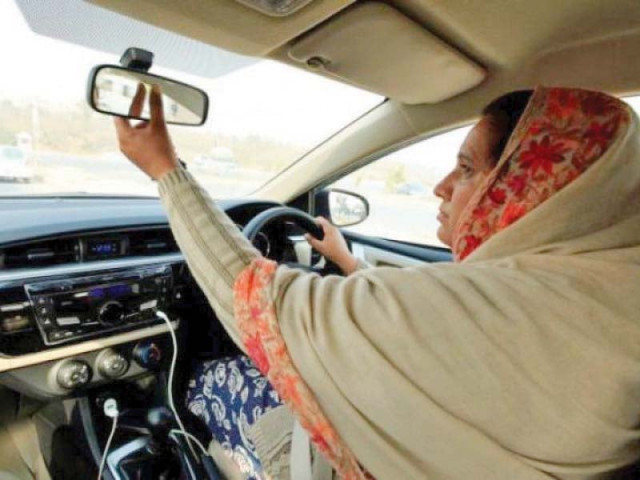Careem introduces 7 female captains to its fleet
Manager says company wants to leverage platform to women to generate healthy income

Launching a female captain service not only helps create equal employment opportunities but also encourages others to break through cultural and social barriers. PHOTO: FILE
Careem, which has a larger market share than rival Uber in most of the 32 cities in the Middle East, North Africa and Pakistan region where it operates, has a new idea for Pakistan; taxis driven by women, who will pick both male and female customers. The start-up operates in the Pakistani cities of Lahore, Islamabad and Karachi.
“We want to give women the same opportunities and the same chance that men have of leveraging our platform to generate healthy income,” said Careem’s Pakistan General Manager Ahmed Usman.
Usman said that seven women drivers had qualified to join the fleet but applications were open and the company hoped more would apply.
Of the seven women inducted, two belong to Karachi, three to Lahore and one to Islamabad.
Zahra Ali, 30, heard about Careem from a friend and thought it would be an “honourable” way to support her two children, who she is raising alone since the death of her husband two years ago. She had just enough money to buy a car and got her driving licence this year. When Ali applied to be a Careem driver a few months ago, she was told there was no provision for women drivers. Then Careem called back with good news.
“The only skill I know is driving,” Ali told Reuters at her home in the city of Lahore.
“Now I can raise my children honourably, I can give my children a good education,” she added.
Launched in Dubai in 2012, Careem has a global force of 90,000-plus drivers and more than four million users registered through its mobile app.
In the sweltering southern city of Karachi, among Careem’s largest markets, demand for secure taxis is particularly strong among women, Usman said. “This is a unique milestone for us here in Pakistan and we are excited to be the ones leading the movement,” said Careem Pakistan Managing Director Junaid Iqbal.
Launching a female captain service not only helps create equal employment opportunities but also encourages others to break through cultural and social barriers, Iqbal added.
Like male captains, all female captains will have to follow the same rigorous training process where they will be checked and verified according to company protocols, to ensure high quality service. Moreover, the company has created a separate line in the Captain’s support department to provide efficient on ground assistance to all female captains.
“This is a great opportunity for women in general and I encourage others to step out and achieve their dreams, whatever they may be,” said Asiya Aziz, a female captain.
“Raising two daughters, I have learnt that when women come together and work for a better future, nothing is impossible, I am proud to be a female captain and to eventually start a business,” she added.
Domestic abuse, other violence and economic discrimination make Pakistan the world’s third-most-dangerous country for women, a 2011 Thomson Reuters Foundation expert poll showed.
According to the company, these female drivers, will not serve all Careem users and are not limited to females only.
Reuters with additional reporting by Shahram Haq
Published in The Express Tribune, December 8th, 2016.
Like Business on Facebook, follow @TribuneBiz on Twitter to stay informed and join in the conversation.


















COMMENTS
Comments are moderated and generally will be posted if they are on-topic and not abusive.
For more information, please see our Comments FAQ